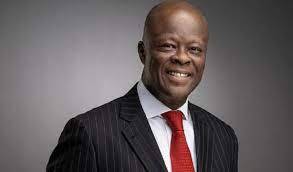 It might have been a coincidence, but it was well timed, perhaps by providence. An issue that has been on the front burner in the last two years, especially since President Goodluck Jonathan came to power, was “finally settled” last week or so it seems. The moment was in my opinion the denouement of a needless controversy that was not intended to serve any good. It is the issue of Nigeria: to be or not to be.
It might have been a coincidence, but it was well timed, perhaps by providence. An issue that has been on the front burner in the last two years, especially since President Goodluck Jonathan came to power, was “finally settled” last week or so it seems. The moment was in my opinion the denouement of a needless controversy that was not intended to serve any good. It is the issue of Nigeria: to be or not to be.
The divergent views were finally coalesced into one—by no less a person than the president, and, of course former military president, General Ibrahim Babangida, in what you can safely call the fusion of the old and the new, to give direction to a nation in dire straits.
At two separate and concurrent events last week, the former and current leaders spoke on the indivisibility of the country. At the national summit and rally for peace organised by the Nigeria Labour Conference (NLC), a reinvented (?) President Jonathan said Nigeria’s unity is not and should not be subjected to negotiation, arguing that those who are calling for the disintegration of the country are “lazy politicians seeking to be kings in tiny islands” Nigeria, he said, “is still rated as a country to look at globally. It is not because we produce oil…we have the population, but I think the key thing is actually the size… so any person who feels that they just want to be king without hard work, they will not get it, because Nigeria will not divide”
For some time now, Niger Deltans of all hues—militants, politicians and elders alike—have openly called for the break-up of the country. And in all these instances, the president maintained stoic silence, when people expected he would shut his kinsmen up. His silence, therefore, gave patriotic Nigerians anxiety about where the president was taking the country to.
The perception that the president was in support of carving out a republic for the Niger Deltans and could not care less or give a damn about what happened to the rest of us, fuelled suspicion about his motives. I do not know when the president finally saw the ‘light and need’ to assert the Nigerianess in him, and that oil does not make a great nation. This underscores the bold relief that came with his declaration last week. In that same vein, those who thought they were one with the president on the issue of disintegrating the country may have to re-strategise a novel idea to destabilise the country.
Then, at the public presentation of Blueprint, where General Babangida served as the guest speaker, he re-echoed his faith in the oneness of the country. His was never in doubt, having fought in the civil war to keep Nigeria together and got a bullet wound as a reward for his efforts. Babangida was emphatic that disintegration was not an option and that we should take advantage of our diversity to work for the common good of the country.
“We have no option but to face the fact that our diversity is not going to disappear, and disintegration is not an option Nigeria and its people can afford. In the first place, the historical association between the different communities currently in Nigeria predated the creation of the country. Consequently, we have been for long intertwined by criss-crossing political, cultural and economic ties that cannot be untangled.” The future, he said, belongs to “big nations with large populations that can stand on their own”, citing India and China as examples.
And so it was that the nation rode on a crest of optimism note last week. The responsibility of keeping the nation united rests more on the president than his kinship to any part of the union. And it is not a mark of bravery for the nation to disintegrate under his watch, no matter the pressure from his region. It is also not in his interest to be perceived to be working covertly to subvert the country and encouraging voices of dissent from any quarters, just because oil is involved.
These calls cannot in any way instil fear in any groups or regions either; all the regions of this country have what it takes to survive on their own, but as has been noted by Jonathan and Babangida, the future belongs to big nations and not small fiefdoms. So, the president should be seen to be promoting national interest as he did last week and not sectional interests that have characterised his administration in the last few years.



